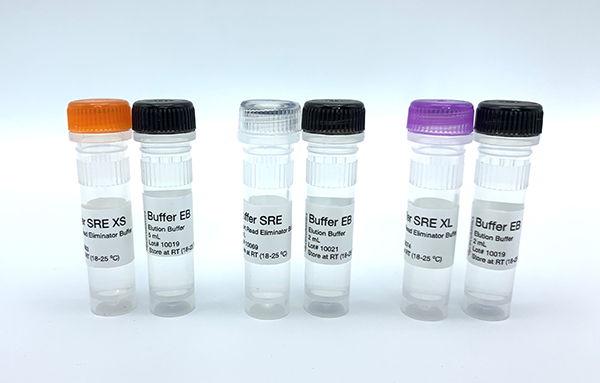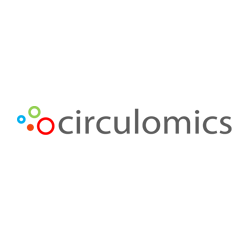
The 13-year Human Genome Project was an amazing scientific milestone that cracked most of our genetic code. Today, we can map genomes faster and more accurately in part thanks to innovative scientists like Kelvin Liu.
Liu decided he wanted to start his own company while working at a pharmaceutical start-up after college. Two jobs and one Ph.D. later, he founded Circulomics to improve the quality of genome sequencing, not only to map human DNA, but DNA from any organism. But the switch from academic to entrepreneur wasn’t easy. Liu says funding from NIH’s Small Business Innovative Research (SBIR) grants helped him make the jump from working as a postdoc at Johns Hopkins to working full time at the company.
Genomic sequencing today often relies on decoding small pieces of DNA, which are later strung together in the correct order using computer algorithms. Circulomics’ technique coats long strands of DNA with protective nanodiscs so the strands don’t break, leading to less sequencing errors when the DNA is strung together. Liu likens the Circulomics process to a puzzle with less pieces— it’s easier to assemble a puzzle with 50 pieces versus 5,000.
Recently Circulomics researchers set the record for sequencing the longest consecutive piece of DNA.
Recently, Circulomics researchers set the record for sequencing the longest consecutive piece of DNA. The company ships their genomic kits all over the world: to academic labs, government research institutes, and biotech companies in more than 40 countries. In May 2021, a team of researchers used Circulomic’s technique to sequence an entire human genome, including gaps that the original human genome project missed. The work resulted in the discovery of 115 human genes.
Liu says researchers also use Circulomics DNA sequencing kits to answer a myriad of scientific questions. One group studies spider DNA to understand web-weaving behavior, which could give us hints about the aging process. Another group is sequencing gut DNA from bacteria to study the human microbiome. Decoding new genomes could also help scientists pinpoint neurochemical pathways or treat cancer.
 This year, biotechnology company Pacific Biosciences acquired Circulomics. ““This team and their elegant technology have the potential for impact across the entire genomics workflow from front-end sample preparation to multiplex assays, library prep, and beyond.”said Dr. Catherine Ball, Senior Vice President of Research at PacBio, in a press release.
This year, biotechnology company Pacific Biosciences acquired Circulomics. ““This team and their elegant technology have the potential for impact across the entire genomics workflow from front-end sample preparation to multiplex assays, library prep, and beyond.”said Dr. Catherine Ball, Senior Vice President of Research at PacBio, in a press release.
Liu says SBIR funding has been critical to the company’s success, and is why Circulomics didn’t need to seek out investor funding. To date the company has received six Phase I and five Phase II SBIR grants from the National Institutes of General Medical Sciences, Environmental Health Sciences, and Human Genome Research Institute. “Without [SBIR] funding, we would have no company,” says Liu.







